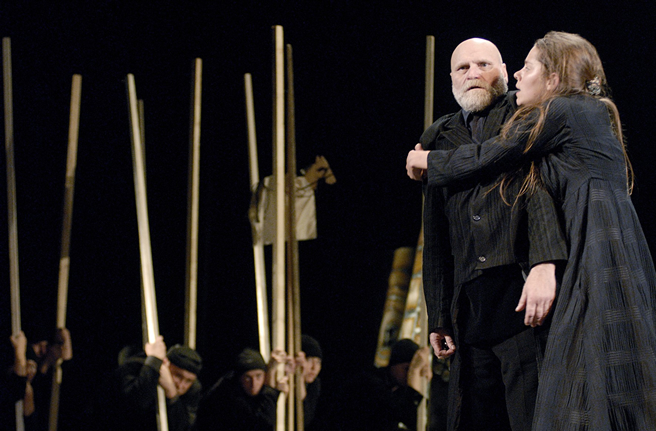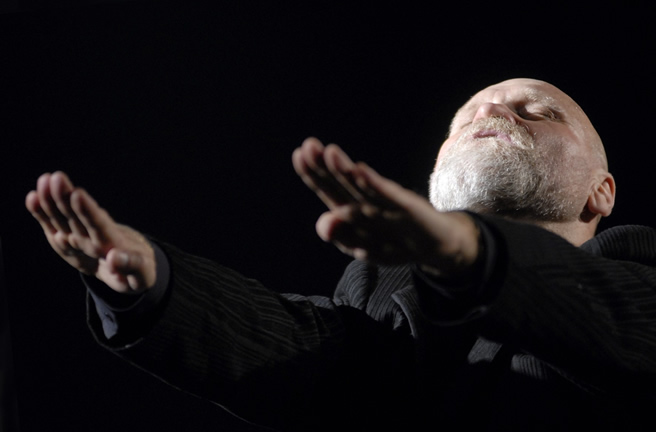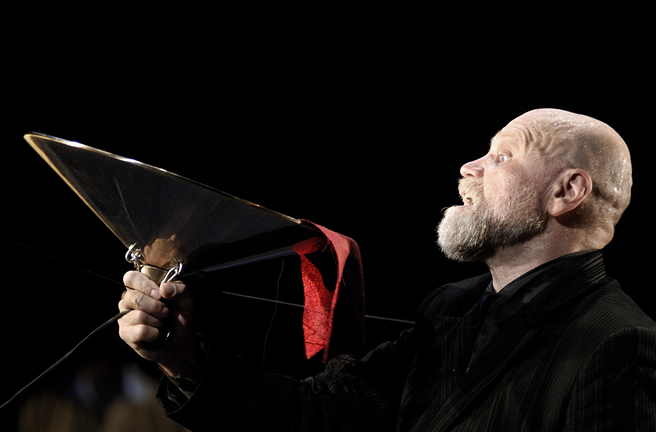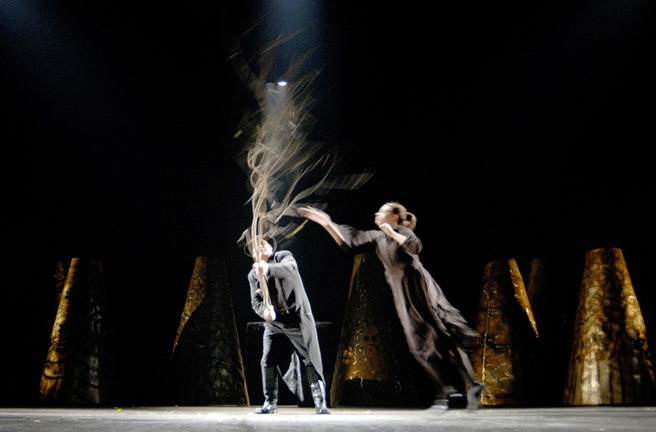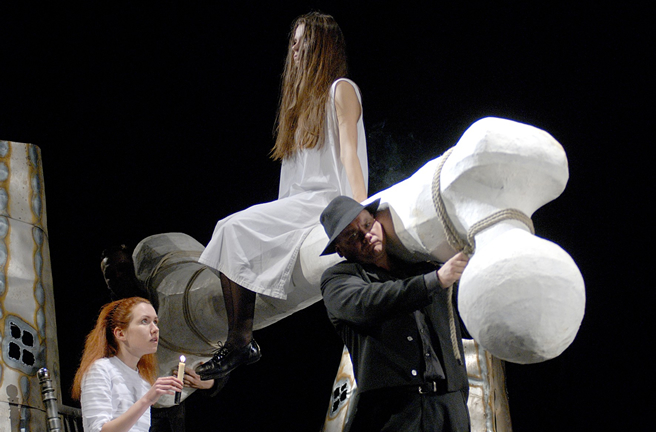My joys are born on this earth.
Goethe
”Faust” is the name of an astonishing maze. What is real and what is mythical in the Faust legend intersected very early on. In 1589, half a century after the death of the real Faust, an odd character who peddled his talents as necromancer, palmist, astrologer and soothsayer from town to town, Marlowe wrote his Doctor Faustus and staged it in London. Already in this work the charlatan of Reformist Germany had very clearly begun his metamorphosis into a great rebel. At the same time, however, the semi-legendary miscreant was undergoing a completely different existence in the popular literature of his native country: a hero of diverse anecdotes, of puppet shows, displayed in various fairs, he had been virtually reduced to the role of a ridiculous marionette when his path crossed that of young Goethe. And there then began a doubly extraordinary literary adventure. For the Faust figure will preoccupy Goethe for over sixty years, from 1771 (date at which he began work on his Urfaust) up to the very last days of his life (in January, 1832, while he was reading the first act of the second Faust to his daughter-in-law he couldn’t keep himself from making a few minor corrections here and there). This intimate dialogue, carried on for so long between a great poet and one of his creations would be alone enough to captivate our attention: Faust, the reflection of a universal mind, ultimately combined in himself traces of all the passions, questionings and doubts that had haunted him. And since his rich complexity finds its sources in so many different strata accumulated since the origins of his existence he has emerged as one of the very rare figures in modern European literature to have attained (along with Don Juan or Hamlet) the status of myth. How to find one’s way in such a labyrinth? Eimuntas Nekrosius seems to be suggesting the thread of time as our Ariadne’s thread: the time of life; the time of youth, and its inexorable passing away; the time of awareness, which inevitably turns back one fine day to the path one has covered. This Faust seems to be divided into two periods: before the pact, our pensive hero (magnificently embodied by Vladas Bagonas) stands alone before the appalling void of existence; after the pact, to a background of evil machination, opens before him Marguerite’s love, and the experience of losing it. Stage time, as well, a time which accumulates, in its sovereign rhythm, its mound of evocative images. As a poet and visionary Nekrosius sets these images, in scene after scene, onto Goethe’s text, then lets them ripen, freeing thus unknown meanings, like those phrases that sometimes race through our dreams. To give just one example: all he needs is a knot on a rope to make perceptible to us this thread of time; the moment that thus becomes knotted on this line of memory becomes the tangible sign of its passing. But then the rope becomes tangled up, until it forms a lump as large as a man’s head – and suddenly this mass, like time rolled up into itself until all its elements become inextricable one from the other, strikes us as being an image of the human mind.
Faust, directed by Eimuntas Nekrosius, won the UBU prize, awarded by the union of Italian theater critics to the best foreign stage production, in January 2008.
Cast
From JOHANN WOLFGANG VON GOETHE
direction EIMUNTAS NEKROSIUS
scenography : Marius Nekrosius
Lights : Dziugas Vakrinas
Music : Faustas Laténas
Sound : Arvydas Duksta
Costumes : Nadezda Gultiajeva
with Vladas Bagdonas, Salvijus Trepulis, Elzbieta Latenaite, Povilas Budrys, Vaidas Vilius, Margarita Ziemelyte, Kestutis Jakstas, and the spirits Ausra Pukelyte, Viktorija Streica, Diana Gancevskaite, Viaceslav Lukjanov, Migle Polikeviciute
Length :
1st part : 60 minutes / interval : 15 minutes / 2d part : 55 minutes / interval : 15 minutes / 3d part : 1 hour 25 minutes.
Therefore : 3 hours 50 minutes
Production: Compagnia Meno Fortas Vilnius
Coproduction with Emilia Romagna Teatro Fondazione, Theatre de la Place Liege, Ministero della Cultura Lituano, Baltic House Festival (St. Petersburg), Lithuanian National Theatre,
in collaboration with Aldo Miguel Grompone
Created on October, 2006, Teatro Comunale di Modena
,


